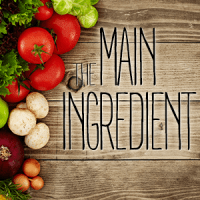Kaylie Bercier has dreams and goals, but her family says there are many hurdles in the way of achieving them because the services needed to support her through her disabilities just aren’t there.

“If you live off-reserve, the services are there, but if you live on-reserve, they’re not,” Kaylie’s mom, Jenn Bercier of Opaskwayak Cree Nation, said.
It’s a reason why the First Nations Health and Social Secretariat of Manitoba has released a report outlining 31 recommendations to enhance services and supports for First Nations adults living with disabilities, called “Supporting the Gifts of First Nations Adults Living with Exceptionalities.”
Many of the recommendations focus on person-centred care and caregiver support in First Nations communities, which Bercier feels is lacking.
“We’re here to support the recommendations because once (Kaylie is) done high school, there are no services in our community for her. So basically, one of us will have to stay home,” she said. “We’ll lose one salary.”
While First Nations children are supported under Jordan’s Principle — which was established to ensure First Nations children in Canada can access the services and supports they need when they need them — that help stops once the child turns 18.
The report urges all levels of government to create a new principle like Jordan’s, and new programming specifically designed for First Nations adults with disabilities, for those like Kaylie, who will age out of the school system in June.
- As Canada’s tax deadline nears, what happens if you don’t file your return?
- Posters promoting ‘Steal From Loblaws Day’ are circulating. How did we get here?
- Drumheller hoping to break record for ‘largest gathering of people dressed as dinosaurs’
- Planning a summer trip to Quebec’s Îles-de-la-Madeleine? You’ll have to pay up
“We will have no supports for continuing her day-to-day activities or learning, she kind of will just stay home,” Bercier said.
That’s something Joni Wilson is also familiar with. Wilson’s 21-year-old son Aiden has lived with disabilities and struggled with medical conditions his entire life.
“He is a very smart, beautiful and extremely witty and creative young man, and he is the light of my life,” she said. “He was born with congenital heart disease (and) has about six different heart conditions in one.
“He’s had a lot of medical treatments, a lot of setbacks over time, including, as a part of that, an unrelated diagnosis of cancer as a baby, and suffered a stroke that had paralyzed the right side of his body,” she said, adding he is doing very well today but has some long-term side effects.
“Part of Aiden’s diagnosis, too, is that he was born with global developmental delay.”
Wilson said he has other exceptionalities that made his life challenging growing up, and still do to this day.
Altogether, paired with jurisdictional issues, Wilson’s family has been forced to leave their home in Peguis First Nation and relocate to Winnipeg.
“We have been a part of provincial systems and we have been a part of federal systems. Through the province we have been able to access such things as community living disability services, disability services and other supports. While we’ve lived on reserve, we’ve had no access to those, because of the jurisdiction and the lack of services that extend (to) reserves.”
She said if they had stayed home, “we would have no respite. We would have had no support of education. He would have no supports for employment, no supports for housing, no day programs.”
Bercier said she couldn’t bear to see Kaylie in this position.
“She’s a young, vibrant young woman who deserves to have supported employment like everybody else in Canada.”
She said she wants to see her daughter continue to learn and find “meaningful employment where she goes somewhere every day (to) a supportive environment to continue her life.”
Parents like Wilson and Bercier, as well as advocates, hope the recommendations outlined in the report will lead to change.
“It is very frustrating, because we are Manitobans, we have a Manitoba health card, we abide by Manitoban laws and we’re seen as Manitobans in other ways. But while living on-reserve, we’re no longer seen as Manitobans,” said Wilson, whose family has filed a human rights complaint with parliament.
“We need these vital supports to live full, happy and supported lives in our communities,” she said.
“We’re all people. We all pay taxes. We all contribute in any way, every day,” Bercier said. “Any time we do anything, we’re all contributing to society. So all members of society should be able to have services.”
The report is addressed to the federal government, but also makes note that collaboration between all levels of government and other institutions, like universities and health authorities, will be needed for these recommendations to become a reality.
Manitoba minister of families, minister responsible for accessibility and gender equity, Nahanni Fontaine said she is reviewing the report, along with others issued under the previous government.
“I know Indigenous individuals living with exceptionalities face additional intersectional barriers because of systemic racism and social discrimination. I’m working to improve accessibility for all Manitobans by identifying, removing, and preventing barriers in partnership with diverse communities,” she said.
Indigenous Services Canada said, “First Nations, Inuit and Métis have the right to access health care without fear of discrimination or racism, no matter where they live. We agree that First Nations adults with exceptionalities are entitled to the fair and equitable delivery of appropriate programs, services and supports to meet their needs.”
It added, “we are engaging with Indigenous communities to support a new distinctions-based, holistic, long-term and continuing care strategy. This will inform more responsive, culturally safe, and integrated health and care services for Indigenous peoples closer to home.”
— with files from Global’s Marney Blunt









Comments